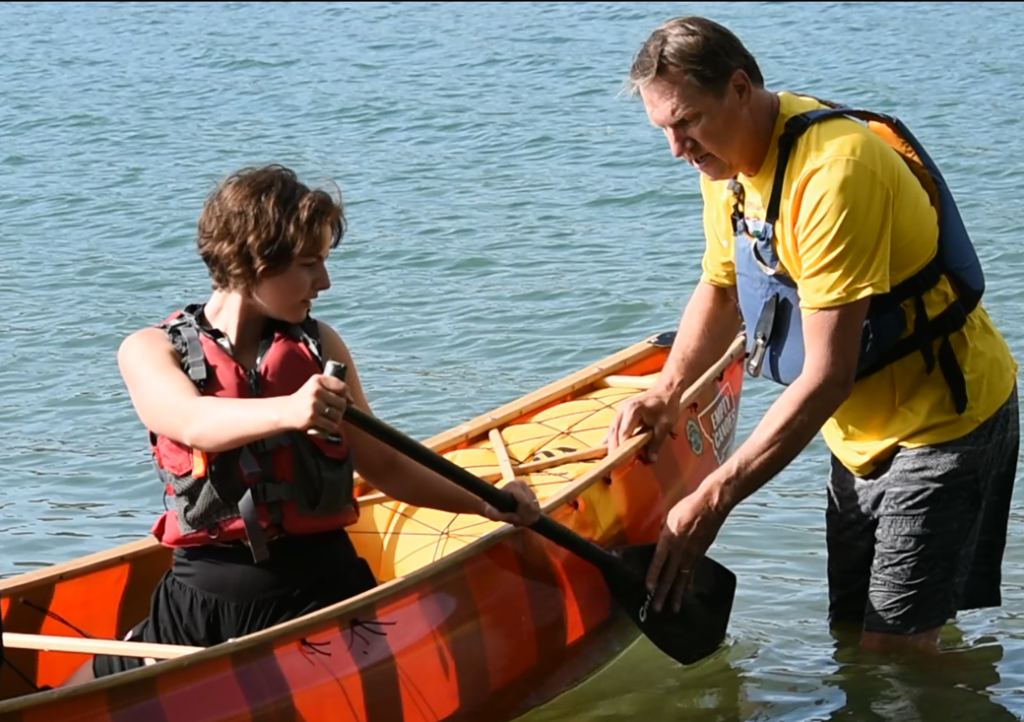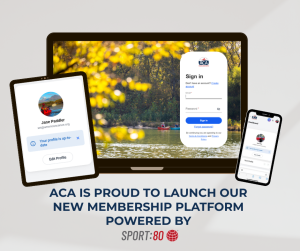
Before becoming an ACA instructor, I’d already spent years chasing water across the country. I was paddling classic whitewater runs in an open canoe — on the Chattooga, the Ocoee, the New, and even the Colorado River through the Grand Canyon. I was guiding rafts on multiple rivers. I’d developed decent paddling skills, a solid river reading sense, and more than a few bumps and bruises from hard-earned lessons. I had been paddling and teaching whitewater canoeing and thought I had a pretty good handle on what it meant to be an instructor.
So, when I signed up for an ACA whitewater canoe instructor course shortly after moving west, I figured it would be a formality — just show up, demonstrate a few strokes, and walk away with a certification. Within the first few minutes of an instructor class with Bob Foote, it became painfully clear to me that this wasn’t going to be a simple box-checking exercise. Bob had a way of quickly revealing the gaps in your game, while personally demonstrating excellence in teaching and paddling. I realized I had a lot more to learn — not just about paddling technique, but about how to teach effectively and responsively. It was humbling. And it changed the trajectory of my paddling and teaching.
Over the next few years, I dove deep into learning with courses with Bob and Kent Ford — two of the most respected ACA instructors in whitewater canoeing. I also took every opportunity to host and co-teach with other instructors. I participated in ACA events, including numerous ACA Open Canoe Slalom National Championships. I learned from instructors and paddlers across the country and saw how different styles could serve different paddlers.
I earned my certification, but that milestone felt secondary to the transformation that happened along the way. Learning from other paddlers and instructors, I began to refine not only my skills, but my perspective.
Along the way I had a chance to co-teach with Marge Cline — known affectionately as “River Mom.” Marge’s teaching philosophy was radically different from the high-performance, whitewater-focused approach I’d grown used to. Her goal was simple, get people on the water safely, quickly, and joyfully. Teaching alongside her was eye-opening. For the first time, I stopped asking, “What do I think they need to know?” and started asking, “What will help them enjoy this experience and come back to the water?” That shift reshaped how I approached instruction.
With more than 40 years of whitewater canoe instruction behind me, I still approach every trip — and every student — as an opportunity to learn. Over the years, I’ve had the privilege of teaching a wide range of paddlers — from Scout leaders learning to guide youth on flatwater, to thrill-seekers chasing Class IV rapids and racers fine-tuning their slalom technique. Each group brings its own questions, energy, and perspective — and each reminds me why I started teaching in the first place. The river continues to challenge and inspire me whether I’m catching every eddy in my solo playboat, running self-supported tandem whitewater expeditions, or paddling the quiet lakes of the Boundary Waters.
Today, I continue to share those lessons through on-water instruction, mentoring new instructors, and developing resources for paddlers of all levels. One way I reach a broader audience is through my canoe instruction YouTube channel, where I post short videos on paddling techniques, safety tips, and effective teaching strategies. It’s a way to give back to the paddling community and help others grow in their own journeys, just as my mentors helped me.
What I’ve come to realize is that good instruction isn’t just about perfect strokes or reading rapids. It’s about listening, adapting, and passing along a love for the water in a way that meets paddlers where they are. The voices of my mentors—Bob, Kent, Marge—are always with me. So are the lessons from every student who’s trusted me to guide them.
The river, it turns out, is a lifelong teacher. And I’m still learning.
Thank you, Jeff, for sharing this incredibly valuable perspective on teaching and learning for the second story of the ACA Story Project!
About the Author:
Jeff Oxenford is an ACA Level 4: Whitewater Canoeing Instructor Trainer Educator based in Colorado. A member of the ACA since 1991, Jeff brings nearly 40 years of experience teaching canoeing — from summer camps and professional outfitters to clubs and private instruction. He has worked with paddlers of all levels, from first-timers to advanced whitewater athletes, and is deeply committed to mentoring the next generation of instructors.

